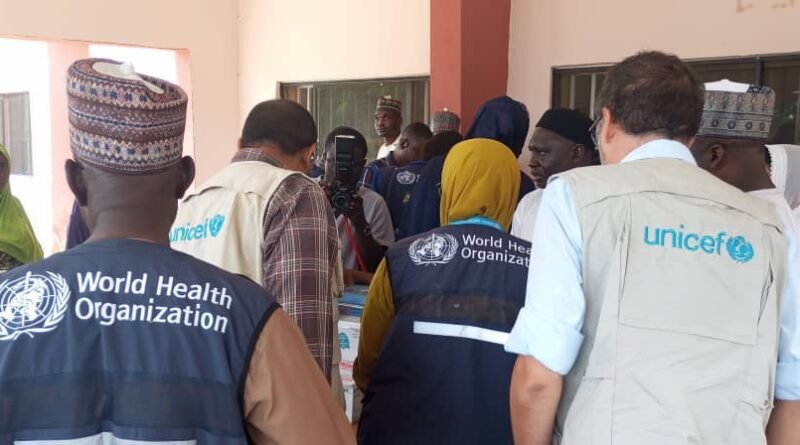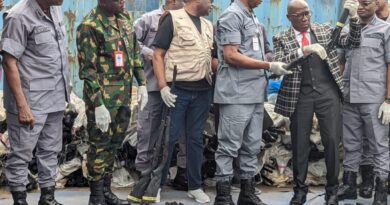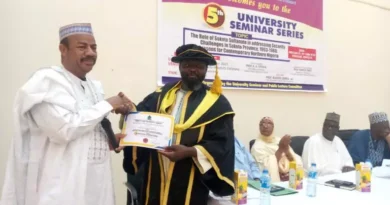Governors Forum, WHO, UNICEF, and Others Visit Jigawa for SWAP Project
From Mika’il Tsoho, Dutse
Representatives from the Nigeria Governors’ Forum, Federal Ministry of Health, World Health Organization (WHO), United Nations Children’s Fund (UNICEF), and other health partners visited Jigawa State to assess the implementation of the Sector-Wide Approach (SWAP) in the health sector.
During the visit, UNICEF Chief of Health, Eduardo Celades Blanco, who led the delegation, explained that the team included representatives from both government and donor agencies. Their goal was to study how the Jigawa State Government is collaborating with development partners on health initiatives and to explore the possibility of replicating these strategies for SWAP programs in other states.
“The team is in Jigawa to observe how the operationalization of SWAP can be effective at the sub-national level, meaning how it can be designed and adopted at both the state and local government levels. After reviewing other states, we chose Jigawa to learn lessons from its approach to coordination, planning, burden and resource allocation, and the strategies used to provide effective health solutions. We hope other states can adopt similar methods to achieve success in their health sectors,” he said.
Speaking to journalists, Dr. Kabiru Ibrahim, Permanent Secretary of the Jigawa State Ministry of Health, expressed his gratitude for Jigawa being selected among all other states in the country.
He explained that SWAP, a unit within the Federal Ministry of Health, provides a platform for pooling resources and addressing health challenges across the country. The approach prioritizes distributing resources based on the magnitude of health issues in each state and local government, ensuring that efforts are tailored to specific challenges.
“SWAP is a new paradigm in Nigeria’s health resource delivery. It involves collecting contributions from donor organizations and governments—federal, state, and local—and pooling them into a single basket. The goal is to address health challenges in a coordinated manner without duplicating efforts or overlooking underserved communities. SWAP reduces disparities between regions, states, and communities by allocating resources based on needs, challenges, and available resources,” Dr. Kabiru explained.
He also emphasized that Jigawa State was chosen for its effective use of the SWAP approach. The state’s government has been at the forefront of addressing health challenges, with development partners supporting the government’s leadership role.
“Jigawa was selected because of our impressive indicators, such as high immunization rates, facility-based deliveries, antenatal care access, and distribution of bed nets. These are just a few of the parameters that reflect the progress we have made in the health sector,” Dr. Kabiru added.
He further commended Governor Malam Umar Namadi for his continued support and approval of the necessary initiatives to improve the state’s health sector and move it to greater heights.





